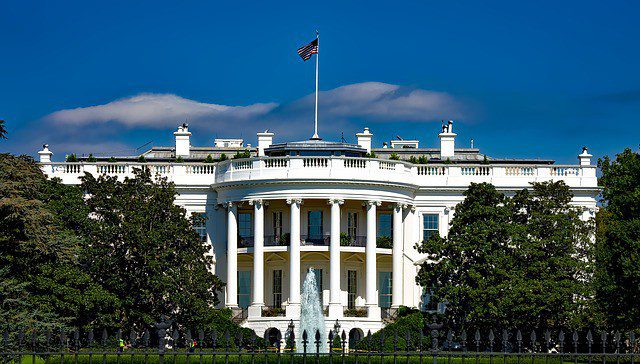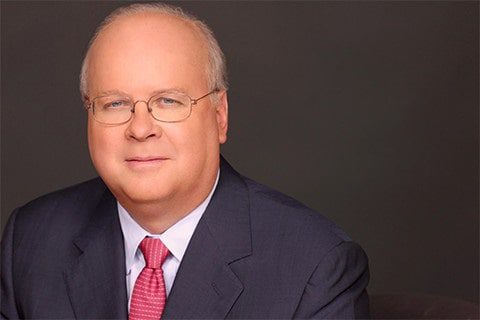
Opinion
Op-Ed first published in The Wall St. Journal
By Karl Rove
Around each Sept. 11 for 19 years, I’ve felt a flood of emotions—anger that terrorists attacked our country, grief at the enormous loss of innocent life, and gratitude for the courage and grit of Americans who responded to the attacks that day and defended our nation in the years since.
On 9/11, just after 8:48 a.m., my White House deputy, Susan Ralston, called to report a plane had flown into the World Trade Center. It wasn’t clear whether it was jet or prop, commercial or private. I walked over to the receiving line outside Emma Booker Elementary School in Sarasota, Fla., and told President George W. Bush. Minutes later, national security adviser Condoleezza Rice called with the same unclear information. The president then went into a second-grade classroom to read to the students, part of the push to pass his No Child Left Behind education reform.
When Mr. Bush came back into the holding room after learning a second plane had flown into the World Trade Center, he had become a wartime president with all the fearsome responsibilities that entails. What he did in the war on terror in the next seven years helped keep the U.S. safe from another major attack for two decades.
This 9/11, my emotions have changed, shaped by the past month’s events. I’ve watched as the sacrifices of the U.S., its allies and the Afghan people were disregarded by President Joe Biden as he fumbled an already ill-advised retreat from Afghanistan. He calls it a withdrawal and compliments himself. In reality, it’s an unnecessary surrender with grave consequences for the U.S., its allies, and the almost 40 million Afghans now under jihadist rule. Chairman of the Joint Chiefs Gen. Mark Milley says it could be only 12 months before there is a “resurgence of terrorism.”
The last time they were in power, the Taliban allowed Osama bin Laden and al Qaeda to use Afghanistan to launch attacks on America, culminating in 9/11. The Taliban now refuses to condemn al Qaeda, and while the group’s leaders agreed last year not to allow them or other jihadist groups to operate in areas they control, they’ve already broken other commitments they made to Mr. Biden’s predecessor. The Taliban and America’s other terrorist enemies see our hasty retreat as proof of weakness, decay and decadence. Expect them to honor few of their promises.
Mr. Biden surrendered Afghanistan even though the U.S. combat role there ended in 2014 and the last American military casualty—before the bloody explosion last month at the Kabul airport—was in February 2020. The U.S. role was no longer ground combat, but counterterrorism, intelligence, training, support and air power, which was critical to keeping the Taliban in check.
As many as two-thirds of Afghans are 25 or younger. All they know is a country striving to become a modern state that respected human rights, allowed women to be educated and work, and permitted everyone to express themselves and strive to make their lives better. Afghans have now been sentenced to barbaric serfdom. I’d call Taliban rule medieval, but that’s an insult to the Middle Ages.
Mr. Biden was applauded by neo-isolationists on the left and right for stopping a “forever war.” We are fortunate such people didn’t convince President Lyndon Johnson to withdraw American troops from Europe 20 years after World War II. Soviet Communism would likely dominate the continent today, rather than America’s friends and allies. Same for South Korea: If President Richard Nixon retreated from the country 20 years after hostilities were suspended, the Kim regime would likely have united the peninsula under communist rule. In either case, the world would be a very different place today.
Op-Ed by Mr. Rove courtesy of rove.com

Karl Rove served as Senior Advisor to President George W. Bush from 2000–2007 and Deputy Chief of Staff from 2004–2007. At the White House he oversaw the Offices of Strategic Initiatives, Political Affairs, Public Liaison, and Intergovernmental Affairs and was Deputy Chief of Staff for Policy, coordinating the White House policy-making process.
Mr. Rove has been described by respected author and columnist Michael Barone in U.S. News & World Report as “…unique…no Presidential appointee has ever had such a strong influence on politics and policy, and none is likely to do so again anytime soon.” Washington Post columnist David Broder has called Mr. Rove a master political strategist whose “game has always been long term…and he plays it with an intensity and attention to detail that few can match.” Fred Barnes, executive editor of The Weekly Standard, has called Mr. Rove “the greatest political mind of his generation and probably of any generation. He knows history, understands the moods of the public, and is a visionary on matters of public policy.”
Before Mr. Rove became known as “The Architect” of President Bush’s 2000 and 2004 campaigns, he was president of Karl Rove + Company, an Austin-based public affairs firm that worked for Republican candidates, non-partisan causes, and non-profit groups. His clients included over 75 Republican U.S. Senate, Congressional, and gubernatorial candidates in 24 states, as well as the Moderate Party of Sweden.

